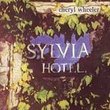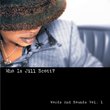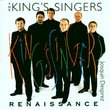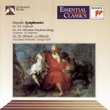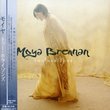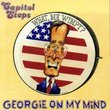| All Artists: Christian Gerhaher, Carl Orff, Simon Rattle, Berlin Philharmonic Orchestra, Sally Matthews, Lawrence Brownlee Title: Orff: Carmina Burana Members Wishing: 0 Total Copies: 0 Label: EMI Classics Release Date: 1/25/2005 Genre: Classical Styles: Opera & Classical Vocal, Symphonies Number of Discs: 1 SwapaCD Credits: 1 UPC: 724355788825 |
Search - Christian Gerhaher, Carl Orff, Simon Rattle :: Orff: Carmina Burana
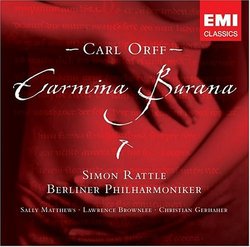 | Christian Gerhaher, Carl Orff, Simon Rattle Orff: Carmina Burana Genre: Classical
Although a prolific composer, Carl Orff (1895-1982) is most famous for his educational work and his Carmina Burana. Scored for orchestra, chorus, and three vocal soloists, it was originally conceived as an opera and first ... more » |
Larger Image |
CD DetailsSynopsis
Amazon.com Although a prolific composer, Carl Orff (1895-1982) is most famous for his educational work and his Carmina Burana. Scored for orchestra, chorus, and three vocal soloists, it was originally conceived as an opera and first performed in a staged production in Frankfurt in 1937. Breaking away from both the lush romanticism and the serialism current at the time, Orff set out in a new--or perhaps very old--direction, based on the simplest elements of music: major and minor triads, progressions in thirds and unisons, blocks of sounds, folksy, catchy tunes (some of which have found their way into soundtracks on film and television), pounding dance rhythms, all hammered home by endless repetition. The effect is almost hypnotic, but Orff avoids monotony by alternating solos with full and half choruses, and with violent contrasts of tempo, texture and dynamics (keep your finger firmly on the volume control). Perhaps the work's immediate and lasting success testifies to the public's readiness to return to an accessible, essentially primitive style. The 13th-century texts in medieval Latin and German were found in 1847 in a Bavarian Benedictine monastery, a most unlikely place: explicit and frankly lascivious, they celebrate fickle fortune, spring, carousing and sensuous love, and include a lament by and for a swan who has been roasted on the spit. Orff also torments his soloists by sending the tenor up to high C's and D's, the baritone to high A's, and the soprano on coloratura excursions up to B and D. The performance is positively stunning; all the participants sing and play their hearts out with boundless enthusiasm and unbridled abandon. --Edith Eisler Similarly Requested CDs
|
CD ReviewsToo much better competition for this one L. Ackerman | Ashburn, VA (USA) | 05/08/2005 (2 out of 5 stars) "The good news is that the soloists are great and the playing is superb. But the bad news supersede the good ones. Nothing wrong with fast tempi, but this one is simply rushed. Based on Sir Rattles recordings, I think he is more marketing hype than a true great conductor. And his recent Mahler 8th simply proves the point. But the issue that frustrates me the most is not Sir Simon but EMI. Why is a company as important as this one still recording miserably after all these years? Carmina should be a sound blockbuster, but EMI refuses to improve the bass and give the ambience a broad span. Try a DECCA/London recording (from any year!) and you will hear what I mean. All these missed opportunities are mind boggling. Even small, independent companies (God bless them) have recorded better Carminas than this one." This could very well be the weakest Carmina Burana yet Eric S. Kim | Southern California | 03/08/2007 (2 out of 5 stars) "Rattle's rendition of Orff's scenic cantata doesn't compare to the renditions from Jochum, Dutoit, Muti, and Welser-Most. Some of the speeds are a bit too fast (even faster than Jochum's choice of pacing), and the sound quality is below average (the bass sound is heard incorrectly). The orchestra and choir sound good, but it doesn't make up for the dreadful soloists. Pass."
|

 Track Listings (25) - Disc #1
Track Listings (25) - Disc #1

